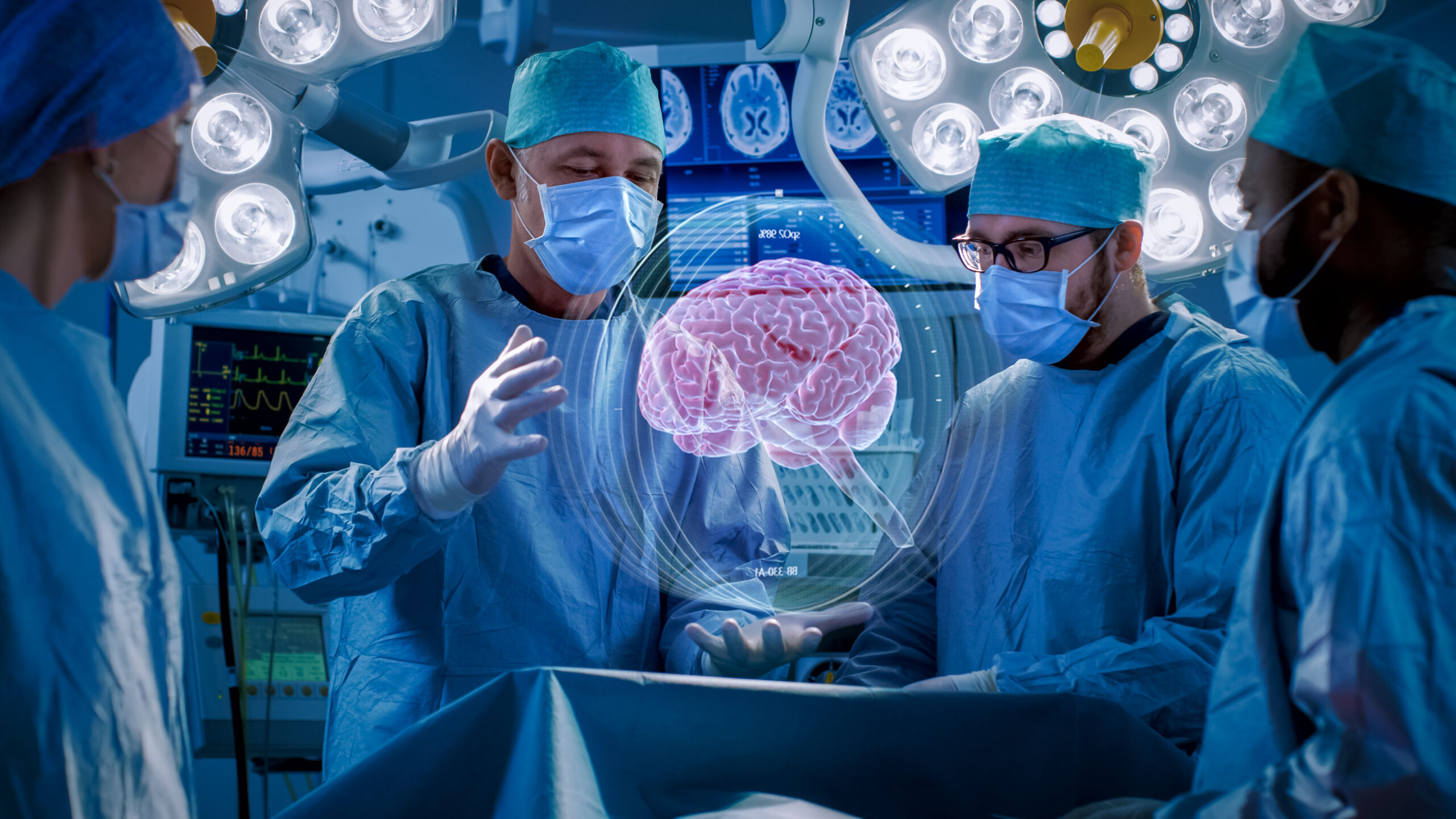Our Mission
HyperProbe is constructing a new optical imaging device that will improve brain surgery by providing enhanced information to neurosurgeons during surgery. The HyperProbe device will provide real-time, high spatial resolution brain tissue images. It will resolve brain tissue cellular and molecular biomarkers with high specificity and sensitivity. Furthermore, it will implement AI and ML approaches for data analysis and image reconstruction for a variety of purposes. The HyperProbe device will be a compact instrument allowing surgeons to easily use it, read the data it provides and integrate it with existing instrumentation. This will contribute to enhance patients’ treatments and life expectancy.

About the project
The HyperProbe device will: provide real-time brain tissue images; resolve with high specificity and sensitivity brain tissue cellular and molecular biomarkers; and implement AI and ML approaches for data analysis and image reconstruction for a variety of purposes. Furthermore, HyperProbe would be completely non-invasive, as it is based on the use of non-ionising light. In addition to this, the system will aim at being compact and cost-effective, completely transportable in order to easily fit in the surgical room and with the advantage of being capable of integration with current neuronavigation modalities, such as the surgical microscope.
Facts and Figures
Name: Transforming brain surgery by advancing functional-guided neuronavigational imaging
Acronym: HyperProbe
Start Date: October 1, 2022
End Date: September 30, 2027
Coordinator: Universita Degli Studi Di Firenze (UNIFI)
Consortium: 8 partners from 5 countries
Funding: € 3 360 825.00
Context
In recent years, through the advancement of imaging technologies (such as MRI, PET, CT, among others) clinical localisation of lesions of the central nervous system (CNS) pre-surgery has made possible for neurosurgeons to plan and navigate away from functional brain locations when removing tumours. However, neuronavigation in the surgical management of brain tumours remains a significant challenge, due to the inability to maintain accurate spatial information of lesioned and non-lesioned locations intraoperatively.
To answer this challenge, we have put together a team of engineers, physicists, data scientists and neurosurgeons to develop an innovative, all-optical intraoperative imaging system based on hyperspectral imaging (HSI) for rapid, multi wavelength spectral acquisition, and artificial intelligence (AI) for image reconstruction and molecular fingerprint recognition.
We will validate the developed capacity in phantoms, in vivo against gold standard modalities in neuronavigational imaging, and finally provide proof of principle during brain tumour surgery. HyperProbe aims at providing functional and structural information on biomarkers of interest that is currently missing during neuro-oncological interventions.
Coordination Team

Francesco Saverio Pavone
Francesco Saverio Pavone is a Full Professor at the Department of Physics of UNIFI and directs a research group at LENS and UNIFI working in the field of biophotonics on single molecule biophysics, microscopy imaging-spectroscopy techniques, biomedical imaging, laser manipulation of bio-samples.

Pietro Ricci
Pietro Ricci completed his PhD in Atomic and Molecular Photonics at the European Laboratory for Non-Linear Spectroscopy in 2022, specializing in neuroscience and microscopy.